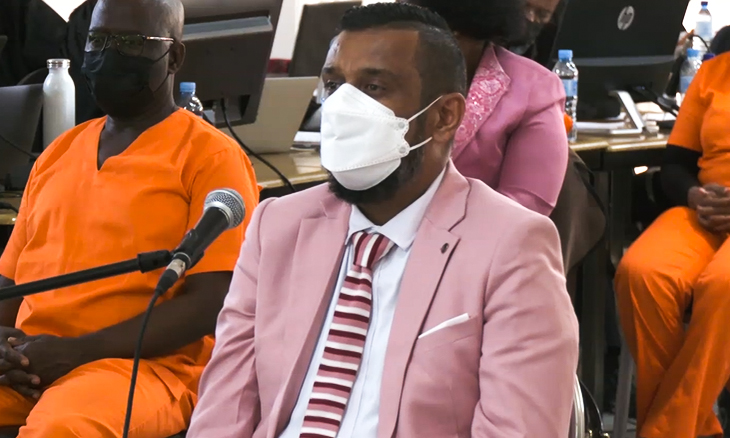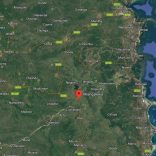Mozambique: At least three fishermen missing, feared abducted in Cabo Delgado
Hidden debts trial: 17 January 2022 – AIM report

Photo: O País
- One of the accused changes his story
One of the 19 people accused of financial crimes, in the case of the scandal of Mozambique’s “hidden debts”, on Monday completely changed the story he had given last year to the Maputo City Court.
The trial resumed after an adjournment of more than a month, caused largely by an outbreak of the Covid-19 respiratory disease in the court.
The trial should have resumed at 09.00 on Monday – but what were politely referred to as “technical problems” delayed proceedings until 13.20. To the anger of most of those present, the electrical and computer systems in the tent where the trial is being held, on the premises of the Maputo Top Security prison, were not working, even though the technical team had over a month to ensure that everything was operating smoothly.
At the insistence of his lawyer, businessman Zulficar Ali Ahmad was the first person to testify on Monday – essentially to withdraw the claims he had made when he first addressed the court in late September.
Ali was charged with money laundering. 100,000 US dollars had shown up in his Mozambican account in 2013, and the prosecution believed the true source of this money was the Abu Dhabi based group Privinvest, which is at the heart of the scandal.
Ali, however, claimed that the money came from a man whom he called a “Lebanese Brazilian”, and named as Marcos Calafiore, who asked to use his account to deposit a cheque for 100,000 dollars, and then withdraw it, bit by bit, in cash.
Calafiore, Ali claimed, was living in the South African town of Komatipoort, and made regular visits to Mozambique. Ali described him as “a good friend”, but could not answer basic questions about him. He did not know his friend’s address in Komatipoort, and could not remember his phone number. He could not remember which hotels Calafiore had stayed in during his visits to Maputo, nor what car he drove (except that it was blue).
Calafiore has died and Ali said he attended the funeral in South Africa – but he could not recall the year of his great friend’s death.
But when Calafiore said he needed to deposit 100,000 dollars, Ali gladly gave him his bank account details. Calafiore, he said, did not have an account denominated in dollars. In fact, he did not have any Mozambican accounts at all, and he wasn’t sure whether he had accounts in South Africa either.
Under questioning, it turned out that Ali did not have a dollar account either. He opened one at the BCI (Commercial and Investment Bank) specifically to receive the 100,000 dollar cheque. Prosecutor Sheila Marrengula said his bank statements showed no activity before receiving that cheque.
The judge, Efigenio Baptista, found Ali’s story incredible, and said so. “Is there any logic to this story?”, he asked. “Would you believe this story, if anybody else told it?”
And on Monday, Ali duly admitted that his original story had been a pack of lies. The source of the money had indeed been Privinvest, and it was commission on the sale of a house he had arranged for one of the main accused in the case, Antonio Carlos do Rosario, the former head of economic intelligence in the State Security Service, SISE.
Rosario had demanded details of a US dollar account into which Privinvest could pay the money. So Ali provided the details of his account.
“I always wanted to tell the truth”, Ali told the judge – but he was persuaded to ago along with the far-fetched rale of the dead Brazilians “because they told me that otherwise Rosario would lose the house”.
Furthermore, he received death and kidnapping threats against himself and his family, should he tell the truth. But when Baptista asked who was threatening him, Ali refused to give any names, on the grounds that his family was still at risk.
“I was obliged to lie”, Ali said. “I’m innocent, I’ve done nothing wrong. All I did was sell a house. My conscience is clear”.
He was telling the truth now, he said, because the man who had been his lawyer in 2013, Imran Issa, had testified as a witness in December, and had spilled the beans. So he believed that if those behind the threats were to come after anyone, it would be Issa and not him. In any case, he was now resigned to his fate, since “God is great”.
He insisted he had no idea of the true origin of the money, and that it was part of a scheme to damage the Mozambican state.












Leave a Reply
Be the First to Comment!
You must be logged in to post a comment.
You must be logged in to post a comment.